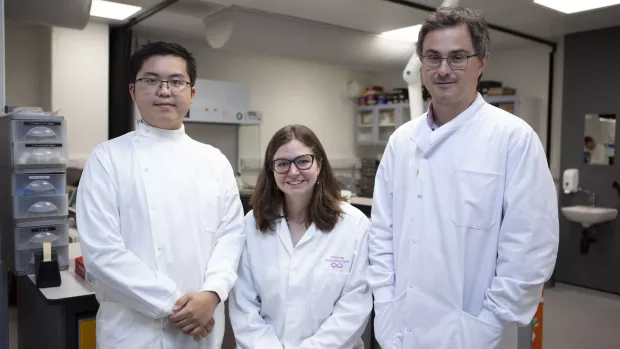Can three existing drugs protect nerves from damage in MS?
We’re proud to have co-funded this innovative phase 2 trial, testing three potential treatments for secondary progressive MS.
The trial ran for three years and tested the benefits of amiloride, fluoxetine and riluzole against a placebo. All three drugs are already used to treat other conditions.
What did the project do?
MS-SMART recruited 445 people with secondary progressive MS. Our researchers used MRI scans to test if any of the drugs could protect nerves from damage in MS. They did this by measuring if the drugs slowed the rate of brain atrophy (shrinkage).
The top-line results of the trial were announced in October 2018. .
What did we find out?
Unfortunately, none of the three drugs that were tested showed the potential to slow disability progression in MS. Although this is very disappointing news, the results tell us a lot about the biological pathways in progressive MS. This will help researchers rule out and prioritise other drugs for future trials.
MS-SMART has also shown, for the first time, that we can run effective multi-drug trials for MS. By testing three drugs together researchers have been able to gather results up to ten years earlier than a standard clinical trial.
How will it help people with MS?
Right now there are no treatments that can slow or stop the accumulation of disability for most people with progressive MS. Clinical trials like this help to identify promising drugs that can be tested in final phase 3 trials. By ruling out groups of drugs we can identify which untried compounds hold the most promise for treating MS.
Being able to run more efficient trials that test many different drugs at the same time will also help us find treatments more quickly.
The difference you can make
The race is on to find therapies that will slow progression. You can help speed up the process by supporting projects like this.


